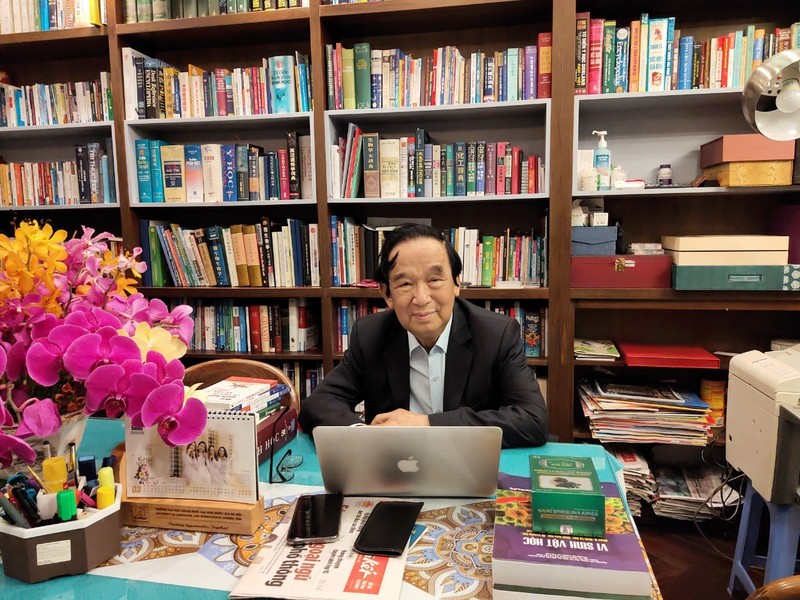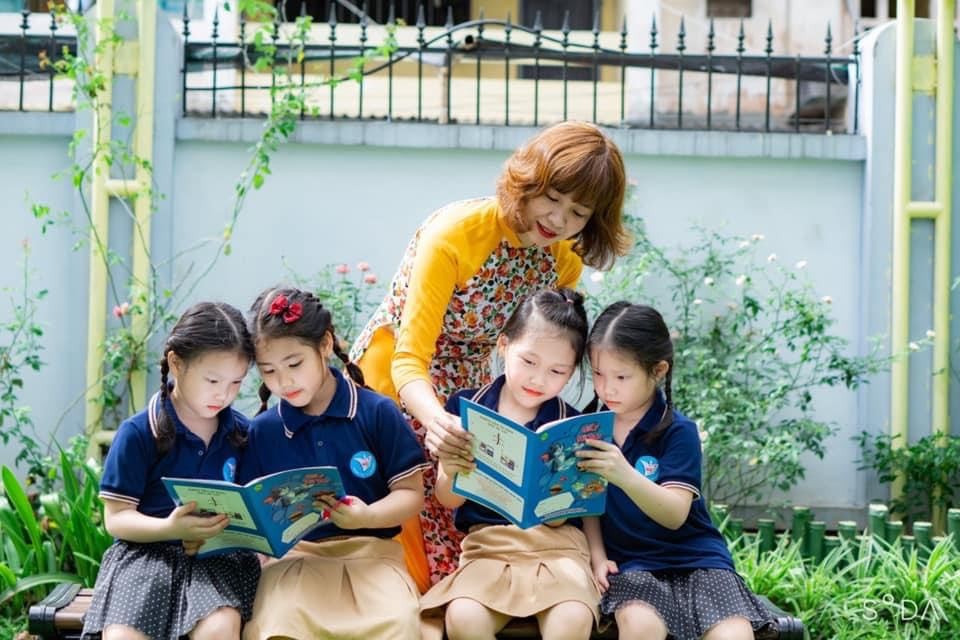
Professor Nguyen Lan Dung: To foster the young generation’s desire to master science in the digital age
Latest
 |
| Professor Nguyen Lan Dung. |
The resolution of the 13th National Party Congress and the country’s development orientation for the period 2021-2030 emphasizes making breakthroughs in education and training, human resource development, making use of high quality and talented personnel. How can we create a young generation of bravery and intelligence?
In order to create a brave and intelligent generation, our country’s educational system must be fundamentally and extensively reformed.
Resolution No.29-NQ/TW clearly stated the goals of “building an open educational system of practical learning, teaching and managing with a suitable educational structure and method; creating conditions for quality improvement; standardizing, modernizing, democratizing, socializing and internationally integrating the education and training system; maintaining the socialist orientation and national identity. By 2030, Viet Nam’s education will have reached a progressive level in the region”.
In order to achieve that goal, curricula and textbooks must correspond in content to that of the developed countries in the region.
Students should progress at the same rate and obtain good results in worldwide and regional examinations and competitions, as well as in teaching and learning content; examinations and examination results should correctly represent the quality of education. Learners are the primary focus of the educational process; after graduation, they possess the required skills and attributes to live and work successfully.
In the fourth industrial revolution, the digital age, it is vital to nurture young people's desire to understand science in order to produce a daring and intellectual generation.
To accomplish that, it is vital to thoroughly study the curriculum while also learning more about recent advancements in robotics, artificial intelligence, 3D printers, self-driving cars, connected devices, nanotechnology and biotechnology…
Many people are concerned about an educational system that can lead learners to international integration. What do you personally think about this?
I think we should have universal education, guaranteeing that 80% of young people complete their high school level. It is also necessary to form an educational system comprising methods of vocational skill training in the direction of application and practice, meeting the needs of technical and human resources in the domestic and international labour markets.
We should focus on building highly qualified human resources, nurturing talents, and improving the quality and ability of learners for self-study, knowledge enrichment, and creativity; completing the network of higher education institutions, the structure of occupations and training levels in line with the national human resource development planning, in which, there are a number of schools and training faculties of regional and international level.
We also need to ensure that everyone, particularly those in rural and disadvantaged areas, as well as policy beneficiaries, has a chance to study in order to improve their knowledge, qualifications, professional skills, and overall quality of life; create favourable conditions for workers to find suitable jobs, and ensure that illiteracy is eradicated permanently.
It is important to focus on literacy and vocational training; revise the program to increase learners' capacity and qualities and harmonize virtue, intelligence, body, and beauty; streamline, modernize, and make instructional information more helpful for people of all ages, levels, and professions; increase practice and put knowledge into practice.
Personality development, ethics, lifestyle, legal and civic awareness are all factors to consider, besides focusing on the fundamental principles of the nation's culture, customs, and morality, the essence of human culture, the core values of Marxism-Leninism, and the humanity of Ho Chi Minh's ideas; strengthening physical education, defense and security understanding, and career guidance; teaching foreign languages and informatics with a focus on standardization, practicality, and ensuring learners' ability to use them.
It is also necessary to pay special attention to educating ethnic minorities' languages, teach Vietnamese and propagate the national culture to Vietnamese overseas; diversify learning content and materials to fulfill the needs of students at all levels of education, as well as educational and training programs and lifetime learning.
 |
| Character education is an important method for children. (Photo: Minh Hien) |
What are your recommendations for improving the quality of education and young human resources in the future to reach worldwide standards?
In my opinion, the content of the curriculum and the manner of teaching English in high schools and universities both need to be updated.
We need to increase the number of native teachers while also providing more opportunities for English teachers to practice in other countries; change the goal of studying into passing the test with fluency in English speaking and listening;
Allocate funds to purchase high school textbooks from foreign countries that have advanced education;
Organize low-cost summer courses for students who desire to study abroad at the undergraduate or graduate level in English-speaking nations;
Select great instructors to fund short-term internships in countries with advanced education.
In your opinion, how can we construct an educational system that serves people, puts children first, produces high-quality people, and promotes the country's development? Simultaneously, how can young people be inspired to protect traditional culture and morality?
Investment in the construction of a number of major pedagogical schools and technical pedagogical schools should be prioritized in order to eliminate the dispersion in the system of teacher training institutions. There is a distinct enrollment and nomination system in place to identify people who own the necessary skills and talents to work in the pedagogy field.
In a volatile and fiercely competitive world, countries with high-quality human resources, a good legal environment for investment and a socio-political environment will gain advantages.
Regular and diverse educational programs for young people on revolutionary tradition, patriotism, pride, and national pride are required; to educate young people by establishing good examples, good people, and good deeds is also important.
We also need to promote learning Ho Chi Minh’s style and moral thinking, take it as an important, regular, and ongoing duty in the Youth Union's educational activities; develop and apply ideas, criteria, and standards in young people's behaviour, a lifestyle based on President Ho Chi Minh's basic values of philosophy, morals, and style;
Organize activities and visits to historical sites, acts of gratitude, care, embellishment, and promotion of historical and cultural relics' values on a regular basis.
The Prime Minister has underlined the importance of "real learning, real exams and real talent" in education. So, what do you think is the essence of the issue?
It is difficult to make the greatest use of the chances that are coming to the country due to the current human resource condition. If the problem of enhancing the quality of human resources is not handled in the near future, Viet Nam will face a quality-of-human-resources crisis. Consequently, we will face a reduction in the economy's competitiveness, struggle to escape the "middle-income trap" and miss out on the international labour market.





















